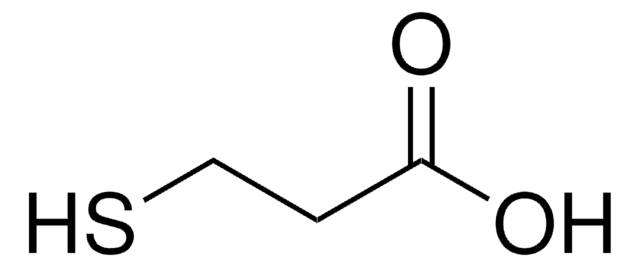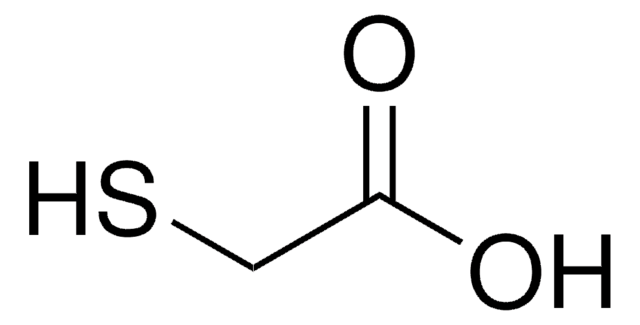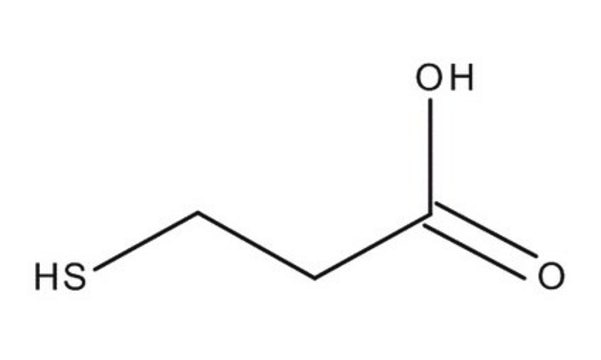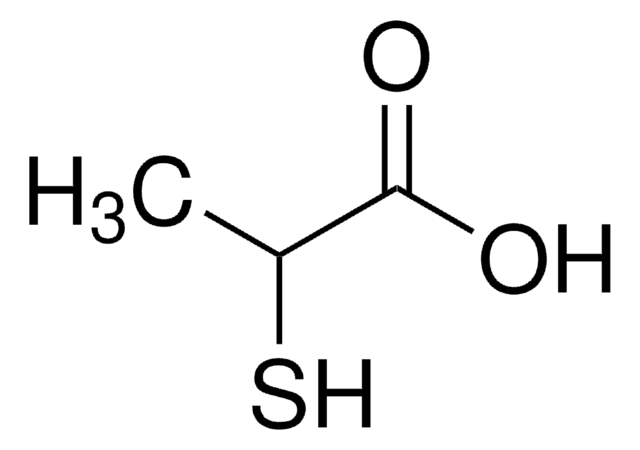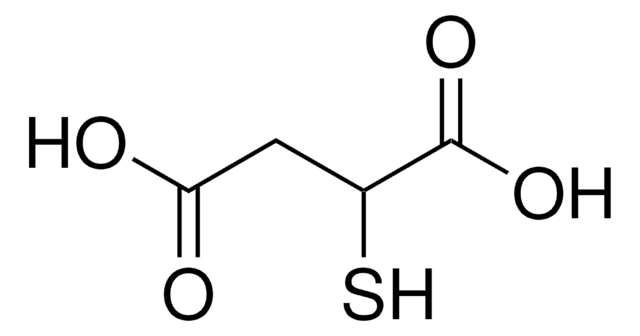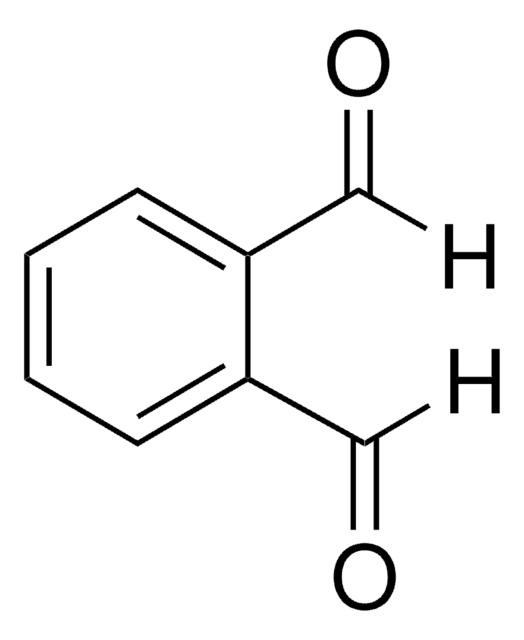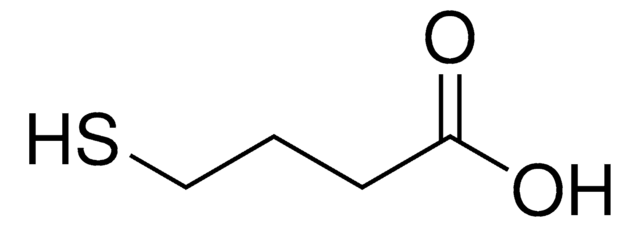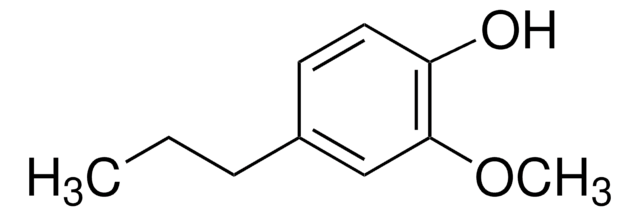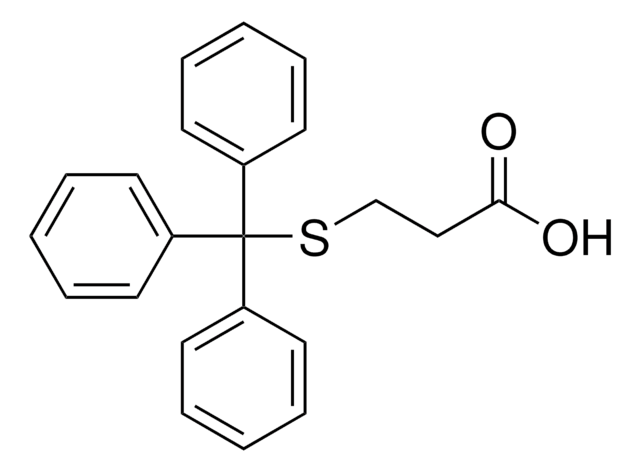M5801
3-Mercaptopropionic acid
≥99%
Synonym(s):
3-sulfanylpropanoic acid
About This Item
Recommended Products
vapor pressure
0.04 mmHg ( 20 °C)
Quality Level
assay
≥99%
form
liquid
autoignition temp.
662 °F
refractive index
n20/D 1.492 (lit.)
bp
110-111 °C/15 mmHg (lit.)
mp
15-18 °C (lit.)
density
1.218 g/mL at 25 °C (lit.)
SMILES string
OC(=O)CCS
InChI
1S/C3H6O2S/c4-3(5)1-2-6/h6H,1-2H2,(H,4,5)
InChI key
DKIDEFUBRARXTE-UHFFFAOYSA-N
Looking for similar products? Visit Product Comparison Guide
Related Categories
General description
Application
signalword
Danger
Hazard Classifications
Acute Tox. 3 Oral - Acute Tox. 4 Inhalation - Eye Dam. 1 - Met. Corr. 1 - Skin Corr. 1B
Storage Class
6.1A - Combustible, acute toxic Cat. 1 and 2 / very toxic hazardous materials
wgk_germany
WGK 1
flash_point_f
200.1 °F - closed cup
flash_point_c
93.4 °C - closed cup
ppe
Faceshields, Gloves, Goggles, type ABEK (EN14387) respirator filter
Certificates of Analysis (COA)
Search for Certificates of Analysis (COA) by entering the products Lot/Batch Number. Lot and Batch Numbers can be found on a product’s label following the words ‘Lot’ or ‘Batch’.
Already Own This Product?
Find documentation for the products that you have recently purchased in the Document Library.
Customers Also Viewed
Articles
Professor Aran (Claremont University, USA) thoroughly discusses the engineering of graphene based materials through careful functionalization of graphene oxide, a solution processable form of graphene.
Our team of scientists has experience in all areas of research including Life Science, Material Science, Chemical Synthesis, Chromatography, Analytical and many others.
Contact Technical Service